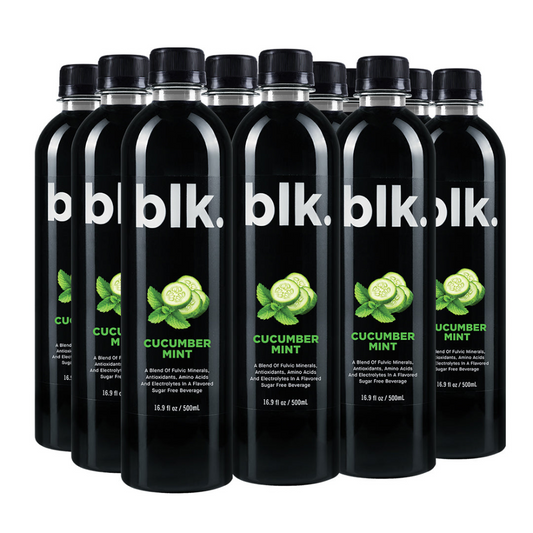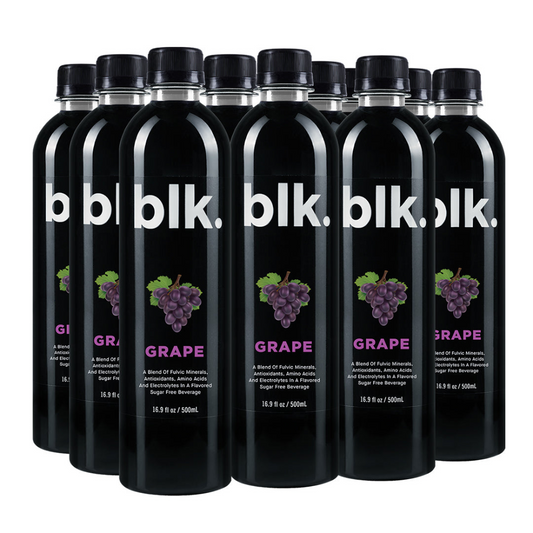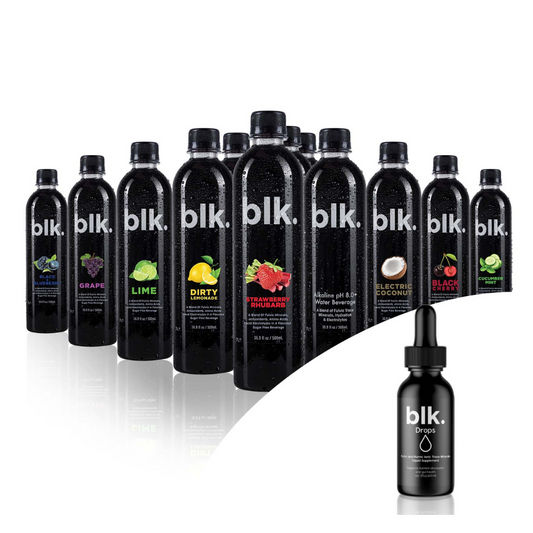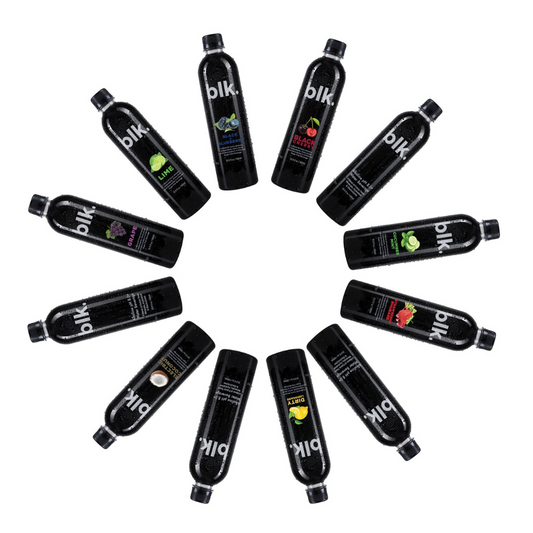
Post-Workout Recovery Supplements: Speed Up Muscle Repair & Growth
This Guide Seeks to Answer the Following:
- What post-workout recovery supplements are, and the different types that exist
- Common ingredients in post-workout supplements
- Benefits of post-workout recovery supplements
- Post-workout recovery and weightlifting
- Potential side effects and precautions of post-workout recovery supplements
- Dosage and timing of post-workout recovery supplements
The body gets into a state of repair at the end of our workout sessions. Besides enough rest and sleep, it needs adequate nutrients to help it recover faster and guarantee better performance, which brings us to post-workout recovery supplementation. Post-workout recovery supplementation involves using specific supplements for faster recovery and speedy muscle repair and growth. Let's learn more about post-workout recovery supplements and their effects on the muscles.
What is Post Workout Recovery Supplements
Post-workout recovery supplements are nutrition products that come in the form of powder, bars, or mixed ingredient formulas used by athletes, bodybuilders, and regular gym goers to enhance the recovery process after workout sessions.
Types of Post-Workout Recovery Supplements
Common post-workout recovery supplements include protein bars, protein powders, EAAs, premixed protein shakes, and BCAAs.
How Post-Workout Recovery Supplements Work
Post-workout recovery supplements supply the body with the nutrients needed to replenish the energy reserves used during exercise and regrow muscle proteins broken down or damaged during intense workout sessions. They also increase muscle protein synthesis, a process that leads to new muscle growth.
Common Ingredients in Post-Workout Recovery Supplements
The common ingredients in post-workout recovery supplements include creatine, protein, glutamine, and BCAAs. Let's find out how they help in faster workout recovery.
Protein
Protein is included in post-workout recovery supplements to help repair and build muscle. The muscle-protein breakdown is a common occurrence among athletes and bodybuilders triggered by exercise. It can be managed by increasing protein consumption, giving the body adequate amino acids to repair and rebuild the broken-down proteins. High-quality proteins also serve as building blocks for new muscle tissues. Good protein sources include salmon, eggs, tuna, chicken, cottage cheese, and animal or plant-based protein powder.
Creatine
Creatine is one of the most used workout supplements by bodybuilders and athletes. According to studies, creatine has been proven to increase strength, exercise performance, and muscle mass, which explains why it is a common ingredient in post-workout recovery supplements. Where does creatine come from? Creatine is a naturally occurring substance in muscle cells, capable of boosting energy production during high-intensity exercise or heavy lifting.
Regarding post-workout recovery, creatine reduces protein breakdown and increases total muscle mass. It also lowers myostatin levels in the muscles leading to increased growth potential.
BCAA's
BCAAs are part of essential amino acids, which refer to the amino acids that can't be synthesized by the body and must therefore be present in the diet. Only three of them, namely leucine, isoleucine, and valine exist. They are commonly found in protein-rich foods such as dairy products, meat, and eggs. BCAAs are also sold as supplements, and unlike other types, they only come in powdery form.
Leucine, one of the three branched-chain amino acids, activates the mTOR pathway in the body, stimulating protein synthesis needed for muscle growth and repair. BCAAs can also decrease muscle damage, hence reducing the length of delayed onset muscle soreness, popularly referred to as DOMs. Studies have also proven that BCAA supplementation during exercise can decrease protein breakdown and creatine kinase levels, generally slowing muscle damage.
Glutamine
Glutamine is a common amino acid. Unlike BCAAs, it can be produced by the body and therefore qualifies as a non-essential amino acid. However, its levels can still be supplemented. Some glutamine-rich foods include skim milk, eggs, beef, tofu, corn, and white rice. Glutamine has been proven to decrease muscle soreness and improve recovery after intense workout sessions.
Understanding the Different Forms of Post-Workout Recovery Supplements
Post-Workout recovery supplements come in different forms. Here are some of the options you will find:
Liquid v Powder Form
Creatine is one of the post-workout recovery supplements that come in powder and liquid form. Even though it's rumored that the effects of liquid post-workout recovery supplements can be instantly felt, such claims cannot be scientifically substantiated. There is no evidence that liquid post-workout recovery supplements work faster than their powdery counterparts. The only possible advantage that may exist is that liquid supplements save you time since you don't have to mix them before intake.
All in all, liquid and powder supplements are better than capsules or tablets since the body doesn't have to break them down into fine powder before absorbing them into the bloodstream. They are therefore absorbed more quickly and efficiently.
Flavored v Unflavored Options
Not every post-workout recovery supplement is flavored. Unflavored options are usually recommended, but if you have to get flavored options, settle for those with natural flavors. According to The Food and Drugs Administration Code of Federal Regulations, common sources of natural flavors include spices, vegetables, fruits, vegetable juice, meat, fruit juice, seafood, poultry, edible herbs, and eggs. Other sources include edible bark, buds, yeast, root leaves, and plant material.
Convenient on-the-go Options for Post-Workout Recovery
Convenient on-the-go options for post-workout recovery include:
- Plain Greek Yogurt- Contains high-quality protein needed for muscle recovery, repair, and rebuild.
- Fruit smoothie consisting of frozen blueberries, strawberries, bananas, cinnamon, and yogurt.
- Turkey slices with apple slices and cheese slices
- Protein bars
- Fruit and nut butter
Benefits of Post-Workout Recovery Supplements
Some of the benefits athletes and bodybuilders obtain from post-workout recovery supplements include:
- Improving Muscle Repair and Growth: Common ingredients used in post-workout supplements, such as branched-chain amino acids, stimulate muscle protein synthesis required for muscle repair and growth after grueling workout sessions. Another common ingredient, creatine, has also been found to support short- and long-term muscle growth.
- Reducing Muscle Soreness and Fatigue: Muscle soreness, often referred to as delayed onset muscle soreness typically occurs 12-24 hours after a workout and can go up to 3 days. It is mainly believed to result from muscle damage caused by exercise. Supplements such as BCAAs decrease muscle damage by reducing the levels of protein breakdown and creatine kinase, leading to reduced muscle soreness and fatigue. Studies have also shown that glutamine, one of the building blocks of protein and a common ingredient in post-workout recovery supplements, can decrease muscle soreness, leading to improved recovery after intense workout sessions.
- Boosting Strength and Endurance For Heavier Lifts: Common post-workout recovery supplements, such as creatine, improve strength and power in endurance training. A study discovered that including creatine in a training program led to an 8% strength improvement. Apart from helping maintain strength and training performance, creatine also helps increase muscle mass during intensive training.
- Improving Recovery Time Between Workouts: High doses of post-workout recovery supplements such as branched-chain amino acids stimulate protein synthesis, shortening the recovery time between workouts and leading to better performance.
Enhance Muscle Building and Performance
Protein, a common nutrient used for post-workout supplementation, has essential amino acids that support muscle recovery and help in muscle protein synthesis. This process leads to enhanced muscle building and improved performance.
Reducing the Risk of Injury and Promoting Overall Joint Health
By supporting faster muscle recovery after intense workout sessions and before subsequent ones, post-workout recovery supplements reduce the overall risk of injury. Other supplements also include omega-3 fatty acids and Boswellia for joint health promotion.
Importance of Post-Workout Recovery for Weightlifting and Gym-Going Individuals
Understanding the Physiological Effects of Weight-lifting on the Body
Some physiological effects of weight-lifting on the body include increased muscle strength and size, changes in body composition, cardiovascular responses, and neuroendocrine function. The increase in muscle strength and power occurs due to neuromuscular adaptations, changes in cross-sectional muscle area (MSA), and connective tissue stiffness.
The Role of Post-Workout Recovery in Optimizing Weightlifting Performance and Results
Recovery gives the body, particularly the muscles, time to relax and heal from workout stress and muscle protein breakdown caused by heavy loads or high-intensity training. It also allows for protein synthesis, leading to faster muscle growth and better weightlifting performance. Additionally, recovery reduces injury risk, which is essential since weightlifting, when injured or sore, is a recipe for poor workout performance or aggravated injury.
Understanding the Biochemistry of Muscle Repair and Growth
Exercises such as resistance training put intense stress on the muscles, causing trauma to the fibers and resulting in injuries and damage. Since muscle cell organelles are disrupted in the process, satellite cells located on the outer part of the muscle fibers, particularly between the plasma membrane and basal lamina, get activated to the injury site. These cells fuse and attach to the muscle fibers, increasing the fibers' hypertrophy and cross-sectional area. They also replicate by dividing, hence multiplying.
Even though some of them are retained as organelles on the muscle fiber, others fuse to the fibers to form new muscle protein strands, scientifically known as myofibrils, to repair damaged fibers. This also means that the muscle cells' myofibrils increase in number and thickness, leading to muscle growth.
Additionally, the satellite cells that fuse to the muscle fiber offer extra nuclei that supplement muscle growth, improve protein synthesis, and create more myosin and actin in skeletal muscle cells.
The Impact of Post-workout Recovery Supplements on Muscle Protein Synthesis
Post-workout recovery supplements are rich in branched-chain amino acids such as leucine, promoting muscle protein synthesis for faster recovery and growth.
How to Incorporate Post-Workout Recovery Supplements into Your Weightlifting Routine
Your post-workout supplementation should be as smooth as possible. Here are some of the ways of incorporating post-workout supplements into your daily routine:
Protein powder smoothies
A common way of incorporating post-workout supplements into a weightlifting routine is through protein powder smoothies. Protein powder is a good protein source that helps build and repair damaged muscle fibers. Here is an easy-to-make protein powder smoothie:
Ingredients
- A medium-sized banana
- ¼ cup rolled oats
- 2 scoops of protein powder
- Low-fat Greek yogurt
- A medium-sized peeled and chopped orange
- A cup of blueberries
Steps
- Carefully place the ingredients in the blender
- Blend until smooth
- Once ready, sieve and pour into a shaker or glass and enjoy.
Note that you can try as many ingredients as possible. This is the best time to get creative.
Protein Bars
You can also choose to make a protein bar, which is one of the most-used post-workout snacks. Protein bars allow you to refuel your muscles after a heavy workout session. All you have to do is ensure that your bar doesn't have too much sugar and contains at least 10-12g of protein.
You can make protein bars or buy them from your favorite store or online vendor. However, we advise you to make your own, so that you can completely control the ingredients and enjoy endless flavor possibilities. Additionally, homemade protein bars are cheaper and environmentally friendly. Here is a simple recipe you can use to make a protein bar:
Ingredients
- Whole rolled oats for added texture
- Natural peanut butter for added crunchiness
- 1-2 scoops of your favorite protein powder
- Honey/real maple syrup
- Cow's/ Almond milk
- Add-ins such as chocolate chips, blueberries, or drizzled chocolate. You can forego the drizzled chocolate if you will be carrying the bars in your gym bag or backpack.
Method
- Mix the real, chunky peanut butter with your milk of choice. Remember also to add honey or maple syrup.
- Add the oats, protein powder, and add-ins.
- Press the protein bars into a pan and chill to set
- Enjoy
Remember that the above recipe requires no baking and is therefore easy to hack. You can use any flavor of protein powder. Go for vanilla, chocolate, or any other option depending on what you like.
Best Practices for Post-Workout Recovery after Weightlifting
Incorporating Rest and Recovery Days into Your Weightlifting Schedule
You give your muscles time to replenish their energy stores by incorporating rest and recovery days into your weightlifting schedule. It also reduces muscle fatigue, gets the muscles ready for your next workout, alleviates muscle pain and soreness, prevents injury, and allows the mind to rest.
Stretching, Foam Rolling, and Other Recovery Techniques
It's essential to stretch before and after your workout for better flexibility. Stretching can help you improve your ability to improve physical activity performance and daily activities and help the joints unlock full motion range. It also allows the muscles to work more effectively and decrease injury risk. Remember to adjust your stretching techniques if you have an injury or a chronic condition to avoid injuring yourself.
Importance of Optimal Hydration for Post-Workout Recovery
Studies support that hydration helps with performance, recovery, and injury prevention among athletes. Drinking lots of water after a workout also replaces the number of fluids lost during sweating, a common occurrence when working out. Lastly, your body performs at its highest level when you are hydrated.
Importance of Sleep for Optimal Post-Workout Recovery
You need adequate sleep for optimal post-workout recovery. Sleeping helps to induce the hormone that helps to repair tissues damaged during exercise, allowing them to regenerate and grow. Lack of enough sleep can also increase the level of catabolic hormones, which inhibits muscle growth when the glycogen supply is low.
Importance of Optimal Nutrition for Post-Workout Recovery
Optimal nutrition, such as the right amounts of protein after exercise, helps stimulate muscle protein synthesis, which improves recovery. It also enhances performance during subsequent workouts for better results. Consuming carbs after a workout also helps replenish the body's glycogen stores.
Common Mistakes to Avoid in Post-Workout Recovery For Weightlifting
Here are some of the things you shouldn't do for better post-workout recovery:
Overtraining and Neglecting Rest and Recovery
Some common overtraining symptoms include overuse injuries, soreness, strain and pain, fatigue, and persistent injuries. Dangers of overtraining include reduced performance, irritability/agitation, poor sleep, decreased immunity, and possible excess weight . It's essential to observe the proper training levels for better overall performance. You must give your body time to rest and recover before working out again.
Not Fueling the Body With Adequate Nutrients After Weightlifting Sessions
After weightlifting sessions, you should fuel the body with adequate healthy fats, protein, and carbs to rebuild energy stores and regrow muscle proteins for faster recovery.
Neglecting Other Recovery Techniques in Addition to Post-Workout Supplements
Other means of promoting fast post-workout recovery besides post-workout supplementation include staying hydrated, getting a massage, sleeping more, wearing compression garments, and cryotherapy. Cryotherapy exposes the body to freezing temperatures for a few minutes, reducing pain, inflammation, and muscle soreness for faster recovery.
Adding a Variety to Your Post-Workout Supplement Routine
You should diversify your post-workout supplement routine for better results. Consider doing the following:
Incorporating Multiple Types of Post-Workout Recovery Supplements
Use different types of post-workout recovery supplements for better results. They include collagen supplements to support joints health, reduce muscle fatigue, branched-chain amino acids supplements to improve muscle protein synthesis, curcumin to improve muscle recovery and performance and fish oil supplements to reduce muscle soreness and improve physical metrics.
Using Post-Workout Recovery Supplements in Combination With Other Supplements and Nutrients
You can use post-workout recovery supplements with pre- and intra-workout supplements for better performance. The benefits of pre-workout supplements include improved energy, focus, and recovery. On the other hand, intra-workouts increase endurance and energy, reduce muscle breakdown and improve hydration. Nutrients needed for improved post-workout recovery include vitamins obtained from fruits and vegetables, healthy fat, and one-third of complex carbohydrates.
The Benefits of Post-Workout Recovery Supplements for Long-Term Weightlifting Success
Here is how post-workout supplementation can help you achieve long-term weightlifting success:
Promoting Overall Health and Wellness
Post-workout recovery supplements have healthy ingredients such as carbohydrates, proteins, fats, and specific amino acids to keep the body in perfect condition. Their regular intake also decreases muscle protein breakdown, contributing to long-term wellness.
Sustaining Weightlifting Progress and Results Over Time
Post-workout supplements sustain weightlifting progress and result over time by enhancing recovery, restoring energy stores, and reducing muscle soreness.
Achieving Weightlifting Goals and Reaching New Personal Bests
Post-workout supplements contain high amounts of branched-chain amino acids such as leucine, promoting protein muscle synthesis for increased muscle hypertrophy and recovery and better workout performance. You can therefore achieve your pre-set goals and even reach new ones.
Who Should Use Post-workout Recovery Supplements?
The following people should use post-workout recovery supplements:
Athletes and Active Individuals
Athletes and active individuals require post-workout supplementation to relieve soreness and regain energy after intense physical activity. This is because post-workout supplement usage helps rebuild damaged tissues and build up energy.
Bodybuilders and Weight Lifters
Bodybuilding and weightlifting put lots of pressure on the muscles. Bodybuilders and weightlifters should therefore take post-workout supplements to repair the muscle broken down during exercise, replenish the energy used during heavy lifting, and increase muscle protein synthesis, which is needed for increased muscle growth, recovery, and strength.
Endurance Athletes
Endurance athletes should take post-workout supplements to support muscle recovery thanks to ingredients such as glutamine and reduce exercise-induced soreness, given the intensity of endurance sessions.
Anyone Looking to Improve Post-Workout Recovery
Post-workout recovery supplements contain various ingredients, such as BCAAs and glutamine, which help promote faster recovery for anyone who may need post-workout recovery apart from the ones mentioned above.
How to Choose the Right Post-Workout Supplement
Are you facing any challenges finding the right post-workout supplement? Do you know some of the things to look out for? We understand that getting the best product may be challenging given the number of brands and competition in the market, so here are some of the things to consider:
Choose a Supplement With High-Quality Ingredients
Settle on a post-workout supplement with active ingredients capable of positively impacting your performance, such as creatine, caffeine, nitrates, and beta-alanine. Additionally, consider options with branched-chain amino acids, which increase muscle protein synthesis, muscle size, and strength. You may also want to avoid artificial ingredients such as sweeteners, colors, and flavors owing to their high-calorie content and association with certain diseases.
Look For Third-Party Tested Supplements
Third-party testing ensures quality, making it an important consideration when getting a supplement. Note that workout supplements are not as regulated as pharmaceuticals. Hence, the only way of knowing if the types and quantities of ingredients written on the label are accurate is via third-party testing. It's also equally important to pick sport-safe certified products if you are an athlete.
Consider Your Personal Goals and Needs
You should figure out what you want to achieve before picking a post-workout supplement. Ensure that you get a product with ingredients specific to your needs. Additionally, properly review labels to identify harmful ingredients that can trigger your allergies or sensitivities.
Dosage and Timing of Post-Workout Recovery Supplements
Recommended Dosage for Post-Workout Recovery Supplements
Like every workout supplement, you must get your post-workout recovery supplement dosage right to unlock its full benefits. Depending on the intensity of your exercises and your post-workout supplement of choice, consider taking 4-6 grams after a workout. Remember to drink plenty of water too to help your body maximize your exercise and post-workout supplementation results.
Ideal Timing For Taking Post-Workout Recovery Supplements
It's a no-brainer that post-workout recovery supplements are taken after workout sessions. However, is there a specific duration or timing? Even though experts recommended taking post-workout meals or recovery supplements 45 minutes after your workout to take advantage of the body's enhanced ability to rebuild glycogen and protein, recent research shows that you may have up to several hours.
Factors that Can Affect the Timing and Dosage of Post-workout Recovery Supplements
Factors affecting the timing and dosage of your post-workout recovery supplements include your fitness goals and intended recovery time. For example, you can take creatine at the start of your workout to give it time to digest so that your body puts it to good use at the tail end of your workout or during recovery time since creatine takes relatively longer to digest. Additionally, you should take your post-workout recovery supplement within the anabolic window for faster recovery.
The intensity of your exercises will also affect the dosage of your post-workout recovery supplement. For example, you may need higher amounts for more intense exercises such as weightlifting and powerlifting, which put more strain on the muscles, increasing their soreness potential.
Lastly, your level of experience may determine how much post-workout to take. You don't need high doses of post-workout recovery supplements if you are just getting started with working out. Consider starting with small doses and slowly increasing your intake as time passes. All in all, get the timing and dosage right for maximum benefits.
Potential Side Effects and Precautions of Post-Workout Recovery Supplements
Common Side Effects of Post-Workout Recovery Supplements
Even though post-workout recovery supplements are generally safe for use, overdose or uncontrolled usage can lead to several side effects, such as:
- Headaches
- Muscle Cramps
- High blood pressure
- Anxiety
- Chest pains
- Bloating
- Dehydration
- Weight gain
- Digestive issues
Make sure that you halt usage immediately and seek the services of a healthcare professional, if possible, upon noticing any of these side effects.
Precautions For Individuals With Pre-existing Health Conditions
Individuals with pre-existing health conditions should consider seeing a physician before using any supplement. It's also essential to seek the opinion of a licensed healthcare professional before making a significant dietary alteration.
Interactions With Medications and Other Supplements
Consider how the different ingredients found in your post-workout recovery supplement react with other medications before settling on it. For example, creatine may negatively react with non-steroidal anti-inflammatory drugs, diuretics, caffeine, cimetidine, and kidney-affecting drugs. It's important to consult your doctor if you are on any medication before using a supplement.
Tips for Minimizing Side Effects and Maximizing Safety
Here are some tips to avoid or better manage post-workout recovery side effects:
- Taking the Right Dosage: It's important to follow the proper dosage when taking supplements since high doses of some ingredients may be unsafe. For example, too many carbs, a common ingredient in post-workout recovery supplements, can lead to weight , a common side effect
- Discontinuing Supplement Use: When you notice any side effects of post-workout recovery supplementation, the wisest and most logical move is to discontinue usage. You can then try a new one or go ahead and consult a healthcare professional or trained dietitian before picking a different product.
- Seeking Professional Advice Before Using a Supplement: It is generally advisable to seek professional advice from a trained and licensed healthcare professional, dietitian, or trainer before trying a supplement since they are better placed to advise you, given that they are experts in the field.
Conclusion
Post-workout recovery supplements may be needed for better workout performance. Benefits include faster muscle repair and growth, reduced fatigue and muscle soreness, improved recovery between workouts, enhanced performance and muscle building, added strength and endurance, and reduced injury risk, which promotes overall health. Remember to stick to best practices that help with faster recovery, such as incorporating rest and recovery days, stretching before exercises, and getting enough sleep.
Frequently Asked Questions
-
How Long Do Post-Workout Recovery Supplements Take to Work?
-
Can Post-Workout Recovery Supplements Be Taken With Other Supplements?
-
What is the Difference Between Post-workout Recovery Supplements and Pre-workout Supplements?
-
Can Post-Workout Recovery Supplements Be Taken on Non-Training Days?
-
Can People With Kidney or Liver Problems use Post-Workout Recovery Supplements?
-
Can Post-Workout Recovery Supplements Be Used Together With Caffeine?




